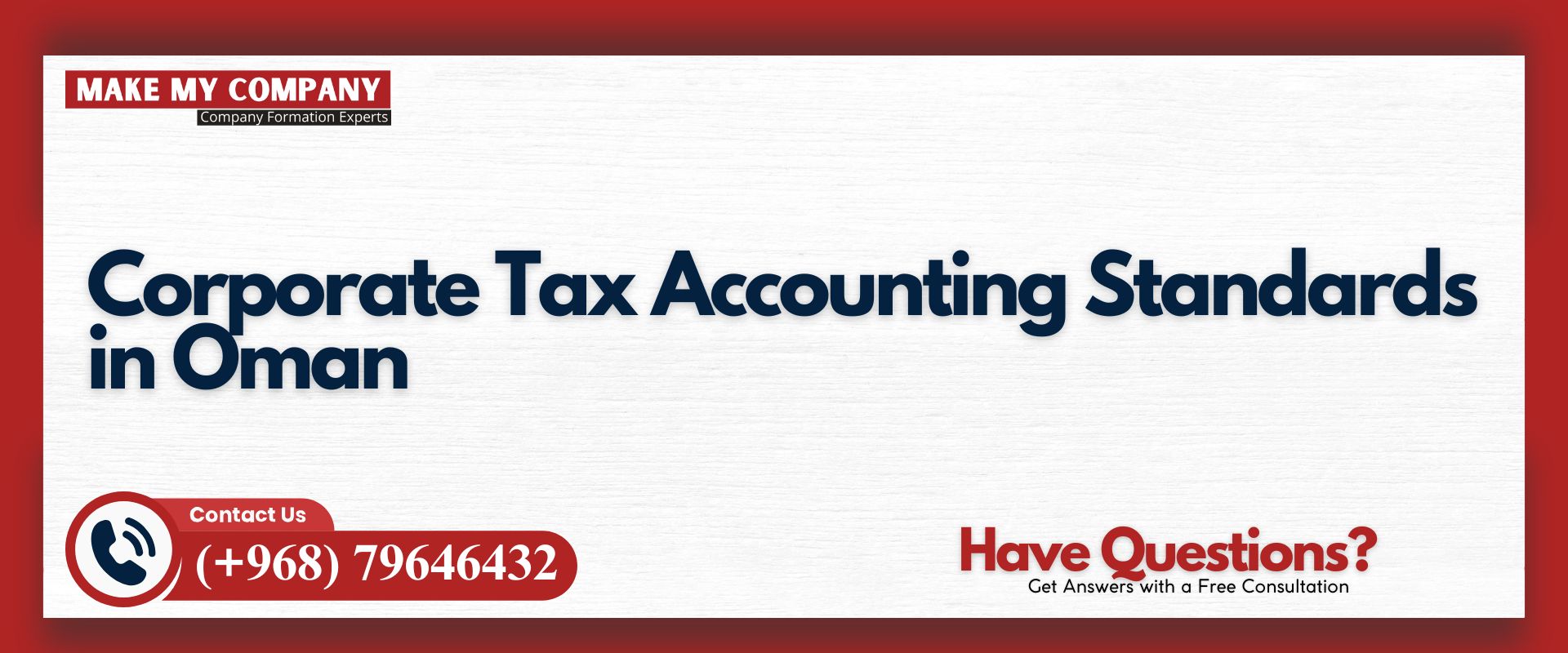A robust understanding of Corporate Tax Accounting Standards in Oman is vital for businesses aiming to remain compliant and optimize their tax obligations. This guide explains everything—from tax regulations and compliance frameworks to international standards and reporting requirements.
Below, each section dives deep into key aspects.
Overview of Oman’s Corporate Tax Environment
Oman’s corporate tax environment has evolved to align with global standards, offering clarity and predictability for businesses. It features structured tax legislation, consistent enforcement, and defined compliance frameworks. With its well-established system, Oman supports corporate transparency, investor confidence, and robust tax governance, making it business-friendly and regulation-ready.
Key Corporate Tax Framework
Oman introduced modern tax laws to align with global norms. The current tax accounting framework in Oman structures how companies report income, deductions, and credits. It ensures transparency and rigorous record-keeping.
Why Standards Are Important
Businesses depend on clear standards to avoid legal risk. Accounting guidelines help ensure accurate corporate income tax disclosure, giving investors and regulators confidence in corporate financials.
Oman Corporate Tax Regulations and Their Scope
Oman corporate tax regulations and their scope cover taxable entities, rate structures, compliance requirements, and enforcement mechanisms. These regulations determine which businesses owe tax, define taxable income, set deadlines for filing and payment, and establish penalties for non-compliance. Understanding the full scope is essential for effective tax management in Oman.
Understanding Regulatory Authority
The government has released Oman corporate tax regulations that define taxable entities, corporate rates, deductions, penalties, and enforcement procedures.
Who Is Subject to Tax?
All companies registered in Oman—even those wholly owned by foreigners—must comply. Entities with Omani operations or those generating income there fall under these regulations.
Applying Omani Accounting Tax Compliance
Applying Omani accounting tax compliance means businesses must align their financial records with local tax laws. This includes proper income reporting, documenting all deductible expenses, and maintaining audit-ready records. Compliance ensures smooth tax filing, avoids penalties, and reflects a company’s commitment to operating transparently within Oman’s regulatory framework.
Financial Record Requirements
For Omani accounting tax compliance, firms must maintain detailed ledgers tracking revenue, expenditures, inventories, assets, and liabilities, all digitally stored for audits.
Audit and Inspection Obligations
Companies undergo periodic inspections. Failing to meet standards may result in fines or sanctions, so robust Omani companies tax compliance checklist are essential.
Corporate Tax Guidelines Oman: Best Practices
Corporate tax guidelines Oman: best practices recommend accurate bookkeeping, timely tax return submissions, and proper documentation of all financial transactions. Businesses should reconcile accounting and tax records regularly, apply allowable deductions correctly, and consult tax professionals when needed. Following these practices ensures compliance and reduces the risk of tax penalties.
Standardized Accounts Preparation
The corporate tax guidelines Oman require annual accounts in a prescribed template, reconciling accounting profit with taxable profit.
Timely Reporting Protocols
Adherence to deadlines—such as quarterly tax estimates and annual returns—is mandated. Missing them may lead to penalties.
Adhering to Tax Reporting Standards Oman Businesses
Adhering to tax reporting standards Oman businesses ensures accuracy, transparency, and regulatory compliance. Companies must report income, expenses, and tax liabilities clearly in financial statements. Proper reporting builds trust with tax authorities, avoids penalties, and supports audit readiness. Following these standards is key to maintaining a strong financial reputation.
Role of Management Accounting
To meet tax reporting standards Oman businesses, companies must bridge gaps between local accounting and tax law through proper adjustments and reconciliations.
External Reporting and Disclosure
Annual financials must include tax notes detailing rate, expenses, deferred tax balances, and uncertainties. This process ensures Oman corporate effective tax rate visibility.
Oman Transfer Pricing Rules and Compliance
Oman transfer pricing rules and compliance require businesses to ensure dealings with related parties follow the arm’s length principle, reflecting market prices. Companies must maintain thorough documentation, including transfer pricing policies, intercompany agreements, and benchmarking studies. Compliance ensures transparency, reduces tax risk, and meets Omani regulatory standards.
Rules for Related-Party Transactions
The Oman transfer pricing rules require that transactions between related entities be conducted at arm’s length, reflecting fair market value.
Documentation Must-Haves
Taxpayers must provide documentation—including benchmarking studies, contracts, and pricing justifications—to withstand audits and inspections.
Accounting Standards for Omani Corporations
Accounting standards for Omani corporations follow local GAAP principles, requiring businesses to maintain transparent and consistent financial records. These standards guide revenue recognition, expense tracking, and asset valuation. Companies must align their accounting practices with tax regulations to ensure accurate filings, support audits, and meet corporate governance and compliance obligations.
Local GAAP and Tax Adjustments
Accounting standards for Omani corporations include Oman GAAP adjustments for tax purposes. Reconciling items that are nondeductible (e.g., depreciation) is essential.
Reconciliation with International Standards
Many large businesses also report under Oman GAAP vs IFRS for corporate tax, requiring dual reporting frameworks and alignment to meet both local compliance and global transparency.
Oman Corporate Tax Filing Requirements
Oman corporate tax filing requirements mandate that companies submit their annual tax returns along with audited financial statements within a set timeframe after the financial year ends. These filings must detail income, expenses, and tax calculations. Accurate submissions ensure compliance, avoid fines, and reflect proper alignment with Oman’s corporate tax regulations.
Annual Return and Payment Schedule
Under Oman corporate tax filing requirements, companies must file annual returns within a specified deadline. Timely payment avoids penalties and interest.
Supporting Documentation
Returns must be accompanied by audited financials, tax calculations, transfer pricing disclosures, and supporting schedules.
Omani Business Tax Accounting Rules
Omani business tax accounting rules define how companies should record income, expenses, and allowable deductions for tax purposes. These rules ensure consistency and accuracy in financial reporting. Businesses must follow recognized accounting principles, maintain clear records, and align their tax filings with the Sultanate’s regulatory framework to avoid penalties.
Eligible Deductions and Allowances
Omani business tax accounting rules define allowable expenses—from employee costs and R&D to capital allowances and bad debts.
Treatment of Non-Deductible Items
Certain items—like fines, luxury benefits, or personal expenses—are explicitly disallowed, requiring adjustments in taxable profit.
Standards for Corporate Tax Computation Oman
Standards for corporate tax computation Oman involve adjusting accounting profits to align with local tax laws. Businesses must exclude non-deductible expenses and include taxable income not recognized in financial statements. The computation also considers capital allowances, depreciation rates, and timing differences to ensure accurate and compliant tax return filings.
Computation Methodology
Following standards for corporate tax computation Oman, taxable profit equals accounting income adjusted for revenue recognition, expenses, and timing differences.
Deferred Tax Consideration
When using accrual accounting, firms account for deferred tax assets/liabilities when temporary differences are expected to reverse.
Oman Corporate Effective Tax Rate and Incentives
Oman corporate effective tax rate and incentives reflect the net tax burden after applying deductions and exemptions. While the standard corporate tax rate applies to taxable profits, companies in priority sectors like energy, logistics, or technology may qualify for reduced rates or tax holidays. These benefits boost after-tax profitability significantly.
Standard Tax Rates
The statutory rate is applied to net profits before tax. Certain sectors may enjoy reduced rates or exemptions under double taxation treatises.
Incentives and Reduced Rates
Omani laws offer targeted benefits—e.g., investments in logistics or special economic zones may qualify for Oman corporate effective tax rate relief or holidays.
Omani Corporate Tax Deduction Rules
Omani corporate tax deduction rules allow businesses to reduce taxable income by claiming eligible expenses like salaries, rent, utilities, and depreciation. However, non-business expenses, fines, and personal costs are not deductible. Proper documentation is required to support all claims and ensure compliance with Oman’s tax authority during assessments or audits.
Depreciation and Capital Allowances
Under Omani corporate tax deduction rules, depreciation is allowed at statutory rates—usually on declining- or straight-line basis.
Other Deductible Expenses
Deductible items include operating costs like utilities, salaries, rent, and qualified financial payments like interest and R&D.
Oman Corporate Income Tax Disclosure Requirements
Oman corporate income tax disclosure requirements ensure transparency in financial reporting. Companies must include detailed notes on taxable income, tax rates, deferred tax, and adjustments in their audited statements. These disclosures help regulators, investors, and tax authorities assess compliance and understand how tax obligations are calculated and reported by businesses.
Annual Reporting Norms
Mandatory Oman corporate income tax disclosure in annual financial statements ensures transparency and avoids tax evasion.
Public vs. Private Entities
While private firms report to tax authorities, public companies list tax information for public stakeholders and regulatory compliance.
Oman GAAP vs IFRS for Corporate Tax: What’s the Difference
Oman GAAP vs IFRS for corporate tax highlights key differences in how income, expenses, and assets are reported. While Oman GAAP follows local rules suited for tax filing, IFRS uses global standards. These differences can affect taxable income, deferred tax, and financial disclosures, especially for international or listed companies.
Recognition and Measurement Variations
Oman GAAP vs IFRS for corporate tax highlights differences in asset valuation, impairment, financial asset classification, and revenue recognition, all affecting taxable income.
Impacts on Deferred Tax
Fair value models under IFRS may introduce complex deferred tax balances not required under local GAAP.
Conclusion
Navigating Corporate Tax Accounting Standards in Oman requires understanding compliance rules, reporting frameworks, and global accounting standards. By incorporating each of these components—from detailed bookkeeping to cross-border transfer pricing—you ensure accurate tax computation, transparent disclosure, and a reliable effective tax rate for your organization.
Seeking professional help? Explore reliable Business Setup Services in Oman to guide you through compliance, filings, and audit support.
FAQs
Are foreign companies subject to Oman tax rules?
Yes, any entity operating or earning Omani-sourced income must comply under Oman corporate tax regulations.
What is Oman’s corporate tax rate?
Typically, the Oman corporate effective tax rate varies but is often set at a competitive standard—subject to updates and incentives.
Do Oman transfer pricing rules apply to small businesses?
Yes, these rules apply broadly, especially for related-party transactions, under Oman transfer pricing rules.
Should I use Oman GAAP or IFRS?
Local businesses may use local reporting, but international entities often adopt IFRS for transparency, as highlighted in Oman GAAP vs IFRS for corporate tax.
When are tax returns due?
Under Oman corporate tax filing requirements, companies typically file within three months after the fiscal year end.
Can companies deduct depreciation?
Yes, within the Omani corporate tax deduction rules, depreciation and other capital allowances are permitted.
Must I disclose my tax rate publicly?
Companies listed or large private entities must include their corporate income tax disclosure in audited statements.
What penalties exist for non-compliance?
Fines, interest on unpaid tax, and possible audits are enforced for failing the Omani business tax accounting rules.
Is there audit oversight?
Yes. Tax authorities perform regular checks to ensure compliance with tax reporting standards Oman businesses.
Where can I get compliance support?
Contact firms offering Business Setup Services in Oman—they assist with everything from accounting systems to audits and regulatory filings.









